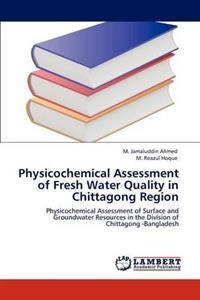
Liknande böcker
The Influence of Coagulation-Flocculation Processes on Water Stability : Experimental research
Bok av Daniela Gologan
The author's research involved the evaluation of 17 coagulants, with various compositions. It covered most types of aluminum and iron coagulation reactants existing in the world to date. Furthermore, it covered the use of three different types of flocculants (polyacrylamide polysilicate and polychitin) with each type of a coagulant, along with bentonite as an adjuvant, for the purpose of reducing the content of organic carbon in surface water. This experimental approach, which targeted many combinations of coagulation-flocculation reactants, is innovative; and the results obtained within can be used as a guide to selecting an optimal combination of adjuvant-coagulant-flocculant, depending on the form of organic carbon that needs to be reduced. The correlations found for the dosage of coagulant and flocculant can be useful to water treatment stations for: dimensioning the coagulation-flocculation equipment, rapidly adjusting the dosage based on qualitative changes in the raw water, and creating an automated program for the coagulation-flocculation phase







